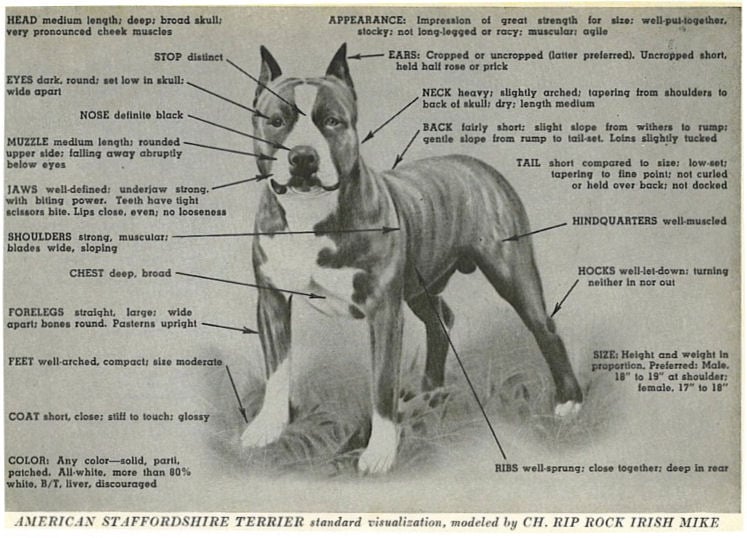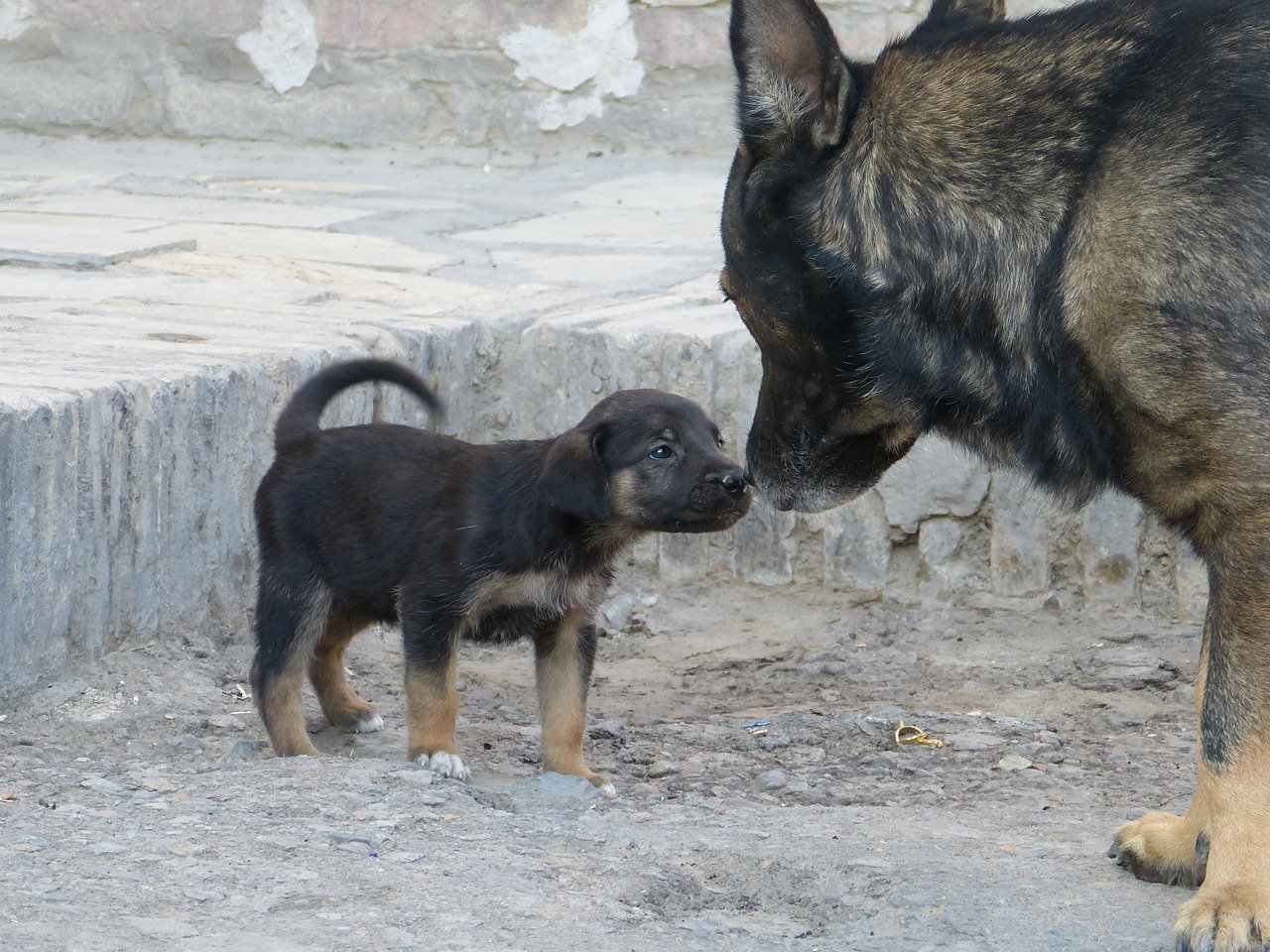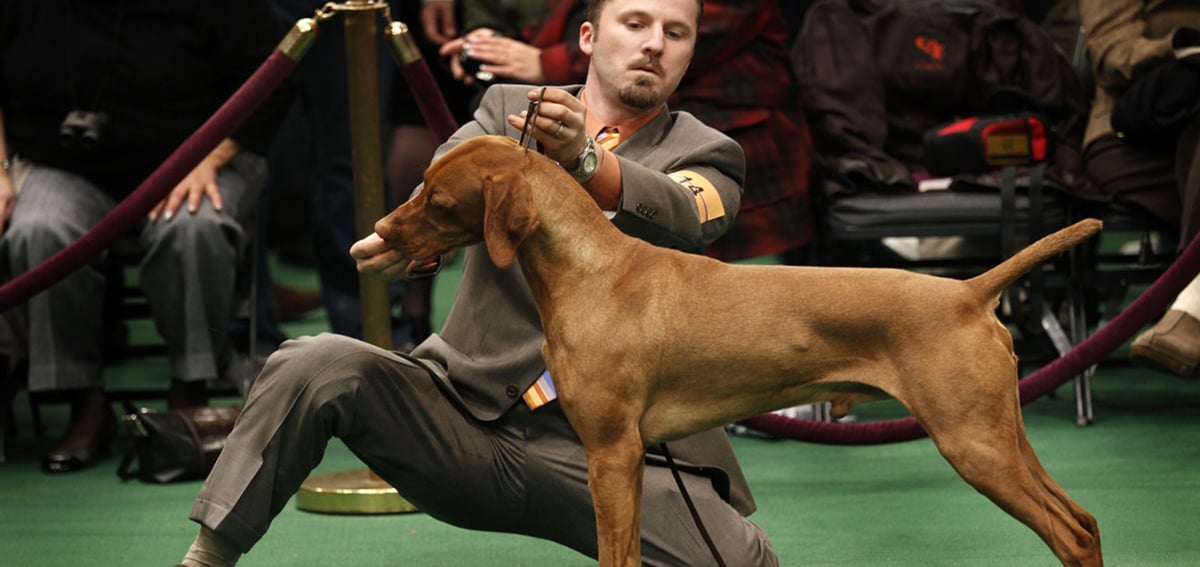A dog breeder who wants his bloodline to touch excellence must be completely objective. Otherwise, he should not even start breeding dogs.
As a professional and responsible breeder, you must look at all your dogs with a judge’s eyes. Your judgment on them must be strict, and objective. Your love for these dogs, your passion for the job, your enthusiasm at seeing them every morning should not intervene in the judging process every dog goes through when being bred.
Read, Understand & Learn
Start by reading the breed standard and stop when you remember it by heart. The breed standard is the objective description of what the best purebred specimen should look and behave like. This piece of text is what defines each breed and if you are planning to breed purebred dogs, it becomes your bible.

However, following the standard should not encourage you to reach extremes and put the emphasis on specific features simply to respond to a trend. A flat-faced bulldog is standard but a too flat-faced bulldog is not standard any more, and beyond the standard, it provokes life-threatening breathing problems.
You must not wander in your breeding program, you must stay within the path clearly described by all Kennel Clubs.
Get “the Eye of the Breeder”
Once you are fully aware of how the perfect specimen looks like, you need to visualize how a standard translates into a real dog. Contact breeders of the same breed as you and meet them, meet their dogs, see why one is a champion and one is not. Dog breeders tend to be proud of their progenies and will happily let you enjoy them, even if you are not planning to buy one. It is an occasion for you to also ask for tips and exchange opinions on the breed, its actuality, and its future.

When looking at a dog, look at it as a judge, not like a dog lover. See litters with similar pedigrees to your own, but also litters from completely different bloodlines. You can exclaim how cute the dogs are but your eyes should put them under thorough scrutiny. Dissect each body part and understand how they are all coming together to make a champion.
The breed’s behavior is extremely important when breeding quality purebred dogs. Look at them playing and running around, see how they use their bodies. Notice the differences within the same litter but also from that breed compared to other breeds or mongrels.
Once you observed them, go ahead and touch them. Feel the puppies’ bodies and feel the parents’ bodies: what is growing like crazy and what is staying the same? What would you not like your dogs to have from the parents?
Keep the perfect outline in your memory and start thinking of a breeding plan that will let you reach this objective. Lastly, maintain great contact with great breeders since you may need their bitch or stud for future mating, especially if they fit your purebred dog’s ideal outline.
Attend Dog Shows & Your Breed’s National Specialty
Purebred dog breeds have a standard defining their form and their purpose. As a responsible dog breeder, you must retain and develop their instinctive ability and desire in your breeding program. Indeed, a failure would be a dog that physically is on point but lacks the ability to do the job they have been bred for over the past years.
Form and function are important, therefore you should attend dog conformation shows but also dog specialty shows. If you are breeding Border Collies, attend herding trials for example.
Compare the participating and winning dogs to yours, see what can you improve to reach the same level of quality. Take notes of the name of the owner and their pedigree for further researches at home. Approach handlers and judges to discuss the breed and mentally record every interesting point they mention so you can dig deeper at home.

Show Your Dogs To People Who Know The Breed
Learning and observing are both essential and easy, but knowing what specialists think of your dogs is hard although essential. You may not like it, you may disagree with it, you may not even want to hear it but you have to confront your dogs to specialists of the breed. This is not up for debate.
Understand the critics they make on your dogs, ask them constructive questions, and ask for advice on how to improve the bloodline over the next generations. Would they know a breeding partner that could balance or diminish your dog’s bad characteristics? Should you breed the dog at all or is he not a good candidate at all?
Asking for feedback is difficult because we are so proud of our dogs that we don’t really want to hear bad things about them. But breeding dogs should be selfless, you are at the breed’s service and disposal. As a dog breeder, every action you take resonates above and beyond your dog(s), it impacts the entire breed. Your responsibility is huge and you must think about the breed over your dog.
A dog not fit for breeding can still live an amazing life, with you, and should not be left on the side of the road. It should stay your best friend as it has been up until now but just digest the fact that you should not breed this particular dog as it will not improve the breed’s overall quality, nor your bloodline’s reputation
[pullquote-right]You have to confront your dogs to specialists of the breed. This is not up for debate.[/pullquote-right]
Update Your Breed’s Knowledge
By attending shows and events, you will naturally exchange and deal with people who, like you, are passionate about the very same breed. Some have been breeding for decades, some only for a few weeks. Speak to everybody, update your knowledge with the ones who have experience but also with the modern breeders bringing modern techniques.
Read books on the breed, read books on canine genetics, read books on modern dog breeding, and improve yourself as much as you are improving your bloodline.
Featured image credits to Jayney’s Creative Works.
